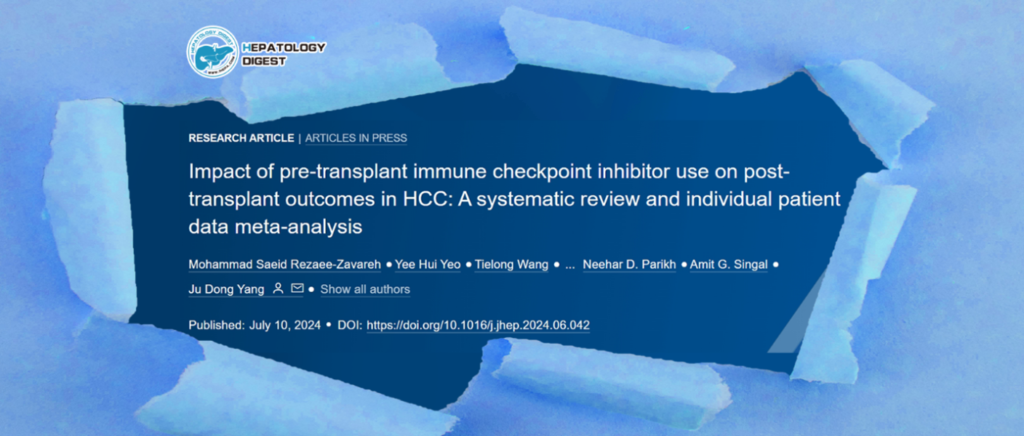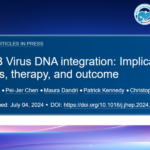
Editor's Note: The Journal of Hepatology (JOH) recently published an online systematic review and individual patient data meta-analysis conducted by Cedars-Sinai Medical Center in Los Angeles. The study investigates the impact of using immune checkpoint inhibitors (ICIs) for hepatocellular carcinoma (HCC) before liver transplantation on various key clinical outcomes post-transplantation. The findings reveal that while ICIs treatment may increase the risk of post-transplant rejection, the overall risk remains manageable, with patient age and ICI clearance time being closely related to rejection risk. This study provides valuable clinical data to support the use of ICIs before liver transplantation, offering new insights and directions for research and clinical practice in this area.With the widespread application of ICIs in cancer treatment, their use in HCC patients before liver transplantation has garnered increasing attention. However, data on their impact on post-transplant outcomes, especially regarding rejection, cancer recurrence, and overall survival, remain incomplete. This study addresses this gap by analyzing detailed data from 91 HCC patients who received ICIs treatment before liver transplantation.
Study Results
Among the 91 eligible patients, 24 (26.4%) experienced post-transplant rejection. Notably, patient age and ICI clearance time were significant factors influencing rejection risk. Specifically, for every 10-year increase in patient age, the risk of rejection decreased by 28%, while extending the ICI clearance period by one week reduced the rejection risk by 8%. Additionally, for patients with a rejection risk of ≤20%, the median ICI clearance period was 94 days or longer.
Regarding HCC recurrence, the study found that 9 patients (9.9%) experienced recurrence post-transplantation. Compared to patients without recurrence, those with recurrence had shorter median ICI treatment periods and a lower tumor burden meeting the Milan criteria after completing ICI treatment. This suggests that ICI treatment duration and tumor burden significantly impact HCC recurrence risk.
In terms of overall survival, the study showed that despite the occurrence of rejection, the overall survival rate of patients with rejection was comparable to those without rejection. This finding further supports the feasibility of using ICIs in HCC patients before liver transplantation.
This study provides crucial clinical references for using ICIs in HCC patients before liver transplantation. By revealing the relationship between factors such as age and ICI clearance period with rejection risk, the study offers a scientific basis for optimizing treatment regimens and reducing rejection risk. Additionally, the findings on the impact of ICI treatment duration and tumor burden on HCC recurrence risk provide new insights for future treatment strategy adjustments.
However, the researchers also pointed out that this study is retrospective with a limited sample size, and the results need further validation in larger-scale prospective studies. Future research is expected to provide more robust support for optimizing treatment strategies and improving liver transplantation success rates in HCC patients.


